Alternative Treatments for Menopausal Symptoms: Benefits & Risks
0 Comments
Why Consider Alternatives?
The decision to use menopausal hormone therapy to relieve the symptoms of menopause is a very individual one. Both the patient and physician must take into account the inherent risks and benefits of hormonal therapy plus a woman’s medical history. Concerns of overall health risks associated with taking replacement hormones leads women to seek alternative remedies. It is important to note, that herbal remedies are not FDA approved, potency and ingredients vary from manufacturer to manufacturer and careful testing and proof of safety is not required. Photo: Getty Images
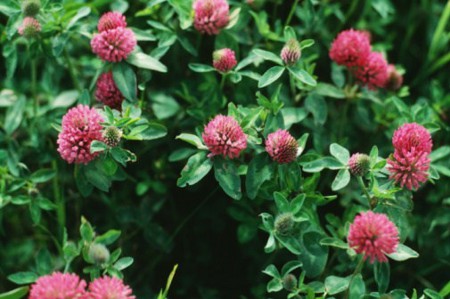
Isoflavones
Isoflavones are chemical compounds found in certain plants that have a chemical structure similar to estrogens produced naturally by the body. These plant estrogens are found in soy, chick peas, lentils and red clover. Benefits: Isoflavones are an herbal alternative to relieve hot flashes. Women who have been diagnosed with breast cancer may have serious concerns about taking hormone therapy. For them, isoflavones may be an option. Risks: There is concern that long-term use of isoflavones may increase the risk of endometrial hyperplasia in postmenopausal women. Use of isoflavones may increase a woman’s risk for developing breast cancer, but there is a lack of definitive data. Photo: Getty Images

Black Cohosh
Black cohosh is a plant native to North America and was used in native American medicine. Benefits: Black cohosh is gaining in popularity as an herbal remedy to treat hot flashes. Risks: Black cohosh can cause headaches, stomach discomfort, and liver damage has been reported in a few cases. Research on the safety of black cohosh is limited. There is concern that long-term use of black cohosh may adversely affect breast and uterine tissue. Until more definitive data is available, women with breast cancer and/or liver disease should avoid taking black cohosh. Photo: Getty Images
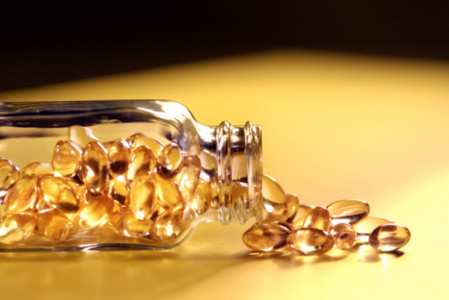
Vitamin E
Vitamin E is a fat soluble vitamin with antioxidant properties. It is important in the production of red blood cells and helps your body use vitamin K. The daily recommendation for individuals ages 14 and older is 15mg per day. Benefits: Some women report that vitamin E supplements can provide relief from mild hot flashes. Scientific study has yet to prove that vitamin E relieves hot flashes. Risks: Taking more than 400 international units of vitamin E supplements may be unsafe. High doses of vitamin E can inhibit platelet aggregation and leads to the increased risk for hemorrhaging. Photo: Getty Images
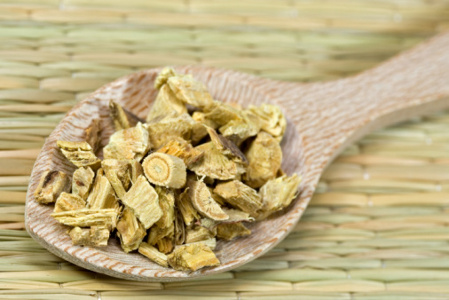
Licorice
Licorice root has been used in herbal medicine to treat indigestion and coughs. Benefits: Licorice is believed to lower estrogen levels while simultaneously raising progesterone levels. For this reason, licorice is thought to be an herbal remedy for menopausal symptoms. Risks: Taking more than 20 grams of daily, regularly, may raise levels of the hormone, aldosterone, causing headaches, high blood pressure and cardiac problems. Photo: Getty Images
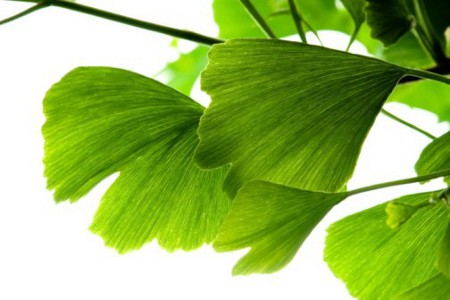
Ginkgo biloba
Ginkgo biloba leaves have been used to treat circulatory disorders and enhance memory. Benefits: Ginkgo biloba extract is used as an herbal treatment to relieve cold hands and feet and forgetfulness associated with menopause. Risks: Herbs contain components that may trigger side effects and interact with other herbs, medications and supplements. Consult your physician before taking any herbal remedies. Photo: Getty Images
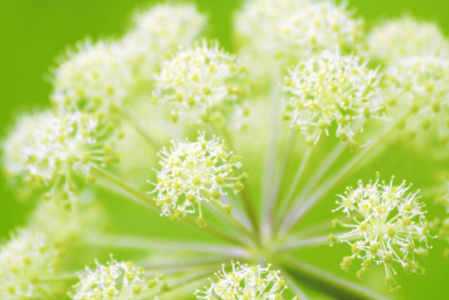
Dong quai
Dong quai root is an herbal Chinese remedy used most often to treat female reproductive problems. Benefits: Some women report relief of hot flashes with dong quai use. It is unclear if dong quai has estrogen-like properties or if it blocks estrogen. So far, scientific studies have not confirmed the effectiveness of dong quai in relieving hot flashes. Risks: High doses of dong quai increase sensitivity to sunlight and causes skin inflammation and rashes. The essential oil of dong quai contains a small amount of cancer-causing substances. Do not use dong quai if you have chronic diarrhea or abdominal bloating. Women who are at risk for hormone-related cancers, such as breast, uterine and ovarian cancers, should not take dong quai because its estrogen-like effects have not been scientifically determined. Sources: National Cancer Institute: Menopausal Hormone Replacement Therapy Use and Cancer SoyConnection.com: Soy Isoflavone Intake and the Risk of Breast and Endometrial Cancers By Mark Messina, Ph.D. Office of Dietary Supplements: Black Cohosh Vitamin E Mayo Clinic: Menopause Alternative Medicine University of Maryland Medical Center: Licorice Ginkgo biloba Dong quai Holisticonline.com: Alternative Medicine for Menopause Photo: Getty Images
Add a CommentComments
There are no comments yet. Be the first one and get the conversation started!